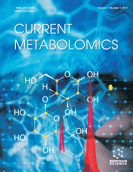Abstract
Common beans (Phaseolus vulgaris, L.), are a safe and digestible source of macro- and micro- nutrients for dogs and supply phytochemicals that are associated with improving human and animal health. In this study, we utilized a targeted and non-targeted metabolomic approach to evaluate dietary cooked navy bean powder (25% weight/weight) as part of the canine food metabolome. GC- and LC-MS were used to evaluate the effects of a navy bean diet on serum biochemistry and chemical composition of feces and urine in clinically healthy adult dogs (n=10), compared to a control diet (n=11). The navy bean diet was higher in 2-piperdinecarboxylic acid, s-methyl cysteine, β-sitosterol, γ-tocopherol, sucrose, and fructose. Companion dogs consuming the 25% navy bean diet for one month had lower serum cholesterol and showed changes in fecal and urine metabolites that were consistent with modulation of lipid and carbohydrate metabolism. Metabolite biomarkers of bean intake were identified in canine diets and urine. These data support the continued investigation of the potential for bean-based diets to improve companion dog health and the utility of nutritional metabolomics in companion animal studies.
Keywords: Beans (Phaseolus vulgaris), carbohydrate, canine, cholesterol, lipid, metabolomics.
Graphical Abstract
 50
50 1
1








.jpeg)








